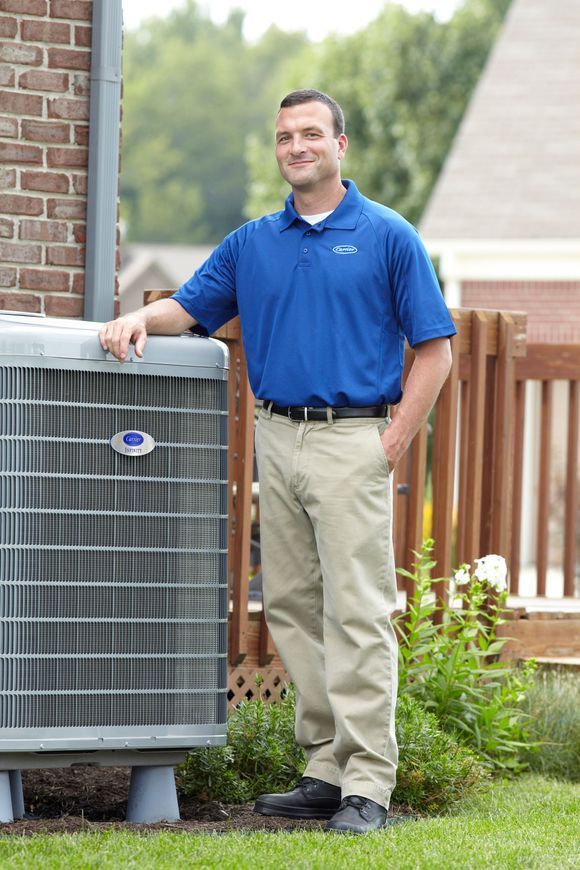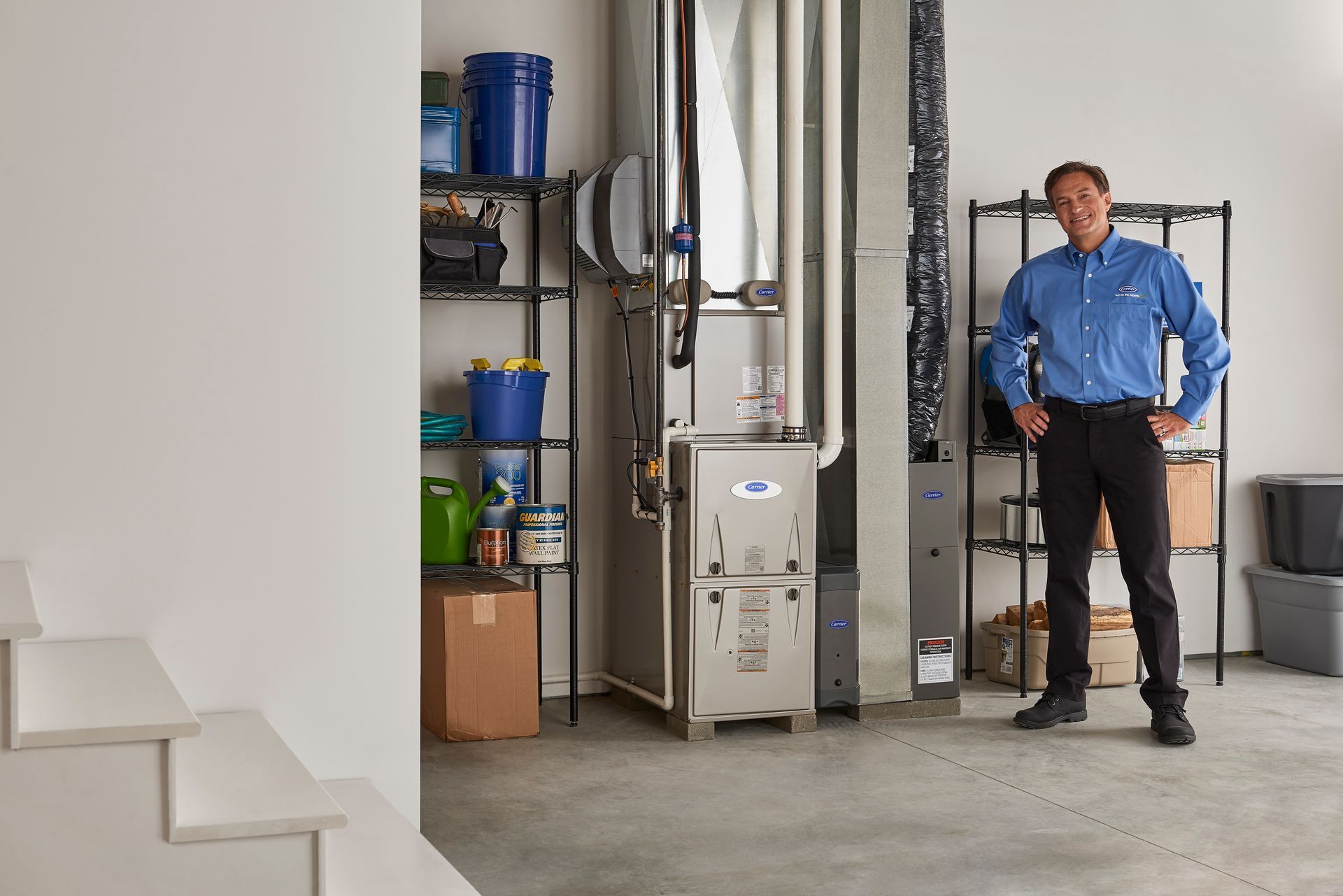Why Indoor Air Quality Matters: How It Affects Your Health & Home
Indoor air quality (IAQ) is a critical aspect of maintaining a healthy living environment that often goes unnoticed. While many homeowners focus on external factors affecting their health and comfort, the air quality within their homes plays an equally significant role. Poor IAQ can lead to various health problems such as allergies, respiratory issues, and general discomfort. Understanding how air pollutants impact your health, identifying common indoor pollution sources, and learning how to improve IAQ can help create a safer and more comfortable home environment, especially for residents in Woodstock, Ontario, and surrounding areas.
Understanding Indoor Air Quality and Its Importance
Indoor air quality refers to the condition of the air inside your home or any other building. It is influenced by various factors, including pollutants, humidity levels, ventilation, and temperature. Good IAQ means that the air is clean, fresh, and free from harmful pollutants. Poor IAQ, on the other hand, can have adverse health effects and diminish the overall comfort of your living space. It is essential to recognize why air quality matters and how it affects both your health and home environment.
Health Effects of Poor Indoor Air Quality
Exposure to poor indoor air quality can lead to a range of health issues. Short-term effects can include irritation of the eyes, nose, and throat, headaches, dizziness, and fatigue. Long-term exposure may lead to more serious conditions, such as respiratory diseases, heart disease, and even cancer. Individuals with pre-existing health conditions, such as asthma or allergies, are particularly vulnerable to the effects of poor IAQ. Furthermore, children and the elderly are more susceptible to pollutants, making it crucial to maintain a healthy indoor environment for the safety and wellbeing of your family.
Common Sources of Indoor Air Pollution
Identifying common sources of indoor air pollution is the first step in addressing IAQ issues. Some typical sources include:
1. Household Cleaning Products: Many cleaning agents contain volatile organic compounds (VOCs) that can release harmful chemicals into the air.
2. Carpets and Upholstery: These can harbor dust mites, pet dander, and other allergens that contribute to poor air quality.
3. Cooking: Gas stoves and cooking appliances can produce nitrogen dioxide and other pollutants that affect IAQ.
4. Tobacco Smoke: Smoking indoors releases harmful chemicals, including carcinogens, that linger in the air.
5. Building Materials: Certain paints, varnishes, and adhesives release VOCs, leading to indoor air pollution.
6. Poor Ventilation: Inadequate ventilation prevents the circulation of fresh air, allowing pollutants to accumulate indoors.
Best Ways to Improve Indoor Air Quality
Improving indoor air quality requires a proactive approach. Here are some effective strategies to enhance IAQ in your home:
1. Air Purifier Installation: Installing an air purifier can help remove pollutants, allergens, and airborne particles, improving the air you breathe. For optimal results, consider air purifier installation that targets specific pollutants prevalent in your home environment.
2. Regular HVAC Maintenance: Scheduling regular HVAC maintenance ensures that your heating and cooling systems operate efficiently, reducing the risk of circulating pollutants. Professional maintenance can also identify and address potential issues before they escalate.
3. Duct Cleaning Services: Over time, dust, allergens, and debris can accumulate in your ductwork, impacting air quality. Regular duct cleaning services help maintain cleaner air by removing these pollutants and improving airflow throughout your home.
4. Use Natural Cleaning Products: Opt for natural, non-toxic cleaning products to minimize the introduction of harmful chemicals into your indoor environment.
5. Ensure Proper Ventilation: Improve ventilation by opening windows and using exhaust fans to allow fresh air in and push stale air out. This is especially important during activities that generate pollutants, like cooking or painting.
6. Control Humidity Levels: Use dehumidifiers to maintain optimal humidity levels, reducing the likelihood of mold growth and dust mite proliferation.
7. Avoid Smoking Indoors: Prohibit smoking inside your home to prevent the buildup of harmful chemicals in the air.
Why Indoor Air Quality Matters for Your Home
Beyond health implications, poor indoor air quality can also affect the integrity of your home. High levels of pollutants can lead to unpleasant odors, dust buildup, and potential structural damage from mold growth. This can diminish the value of your property and lead to costly repairs. Moreover, maintaining good IAQ is important for preserving the aesthetic appeal and cleanliness of your living space.
Proactive Steps for a Healthier Home
Taking proactive steps to improve indoor air quality is essential for creating a safe and comfortable home environment. For those living in Woodstock and the surrounding areas, it is important to work with local experts who understand the specific challenges and needs of your region. Services such as air purifier installation, regular HVAC maintenance, and duct cleaning can significantly improve IAQ and ensure a healthier home for you and your family.
If you're concerned about the air quality in your home, consider reaching out to professionals who specialize in IAQ solutions. We can provide tailored advice and services to help you achieve better air quality and peace of mind. Addressing IAQ not only protects your health but also enhances the overall quality of your living environment. At Lloyd's, we prioritize your home’s air quality to help you enjoy the benefits of a cleaner, healthier space. Contact us today!











